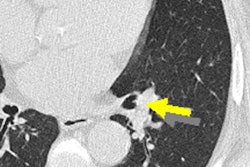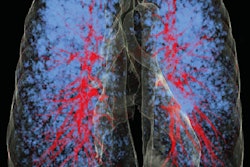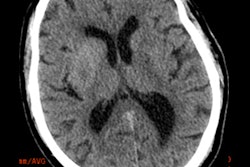Dear AuntMinnieEurope Member,
Wisdom cannot be taught, but you can look, sound, and act as if you're wise.
That's the view of columnist Dr. Paul McCoubrie, who admits he was a fool when he was younger. How has he acquired insight? And what can you do to control the so-called monkey of instant gratification? Click here to find out.
To perform an accurate diagnosis of cardiogenic stroke, radiologists must be able to recognize the subtle cardiac pathologies responsible for the stroke, according to Spanish researchers, who won a magna cum laude award for their work at ECR 2017. They described three main subtypes of brain ischemia, and gave other practical tips on the subject of stroke. Go to our Cardiac Imaging Community, or click here.
CT is effective for evaluating the lung parenchyma, but debate continues over the potentially harmful effects of CT radiation. A Swiss group has addressed these dose concerns and found that a CT protocol using tin filtration and iterative reconstruction reduces radiation dose levels to the equivalent of a chest x-ray for lung volumetry, as well as the detection and quantification of emphysema. Visit the CT Community, or click here.
Meanwhile, new Italian data on CT lung cancer screening were published on 7 April and are well worth a close look. To do so, click here.
The National Cohort Health Study in Germany began three years ago, and steady progress is being made in this hugely significant project. Dr. Fabian Bamberg has provided an update on the scheme, and you can get it in our MRI Community, or by clicking here.
Finally, don't miss our original Case of the Week from Dr. Tobias Granberg, PhD, at the Karolinska Hospital in Stockholm. Test yourself here.



















